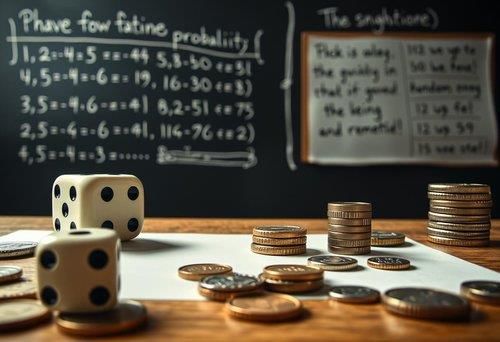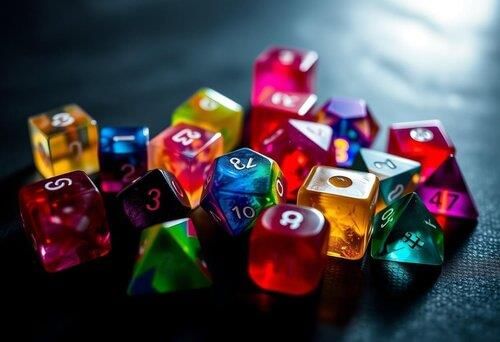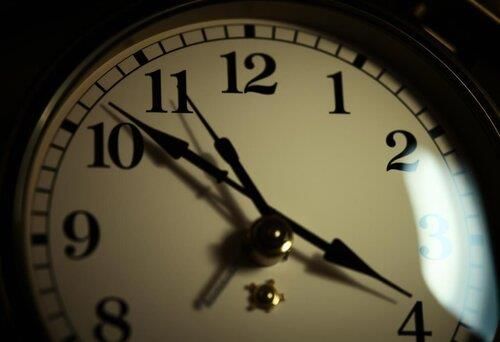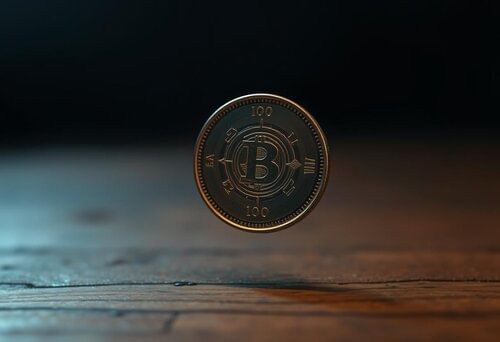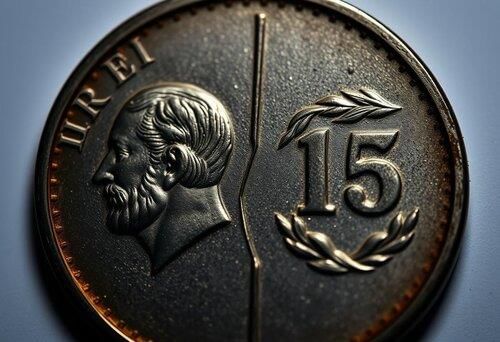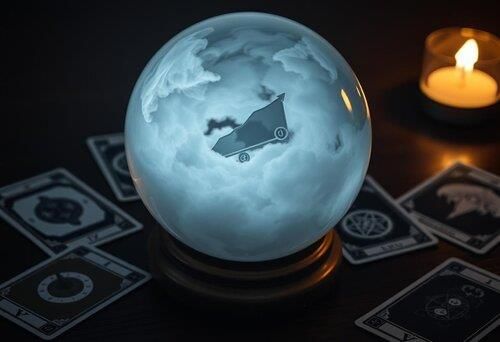The probability scale ranges from impossible to certainUnderstanding Probability Terms
|
Card: 2 / 50 |
|
In Bag A, which contains 3 green and 3 blue balls, what is the probability of picking a green ball? |
Card: 3 / 50 |
50%Probability of Picking a Green Ball
|
Card: 4 / 50 |
|
Fill in the blank: An event described as 'impossible' has a probability of ___ occurring. |
Card: 5 / 50 |
|
True or False: In Bag C, which contains 0 green and 10 blue balls, it is possible to pick a green ball. |
Card: 7 / 50 |
Predicting OutcomesProbability Language in Real-World Scenarios
|
Card: 10 / 50 |
|
Riddle: I can be expected but not guaranteed, and my certainty is often debated. What am I? |
Card: 11 / 50 |
|
In a probability experiment involving a spinner with numbers 1 to 6, which outcome is more likely to occur: scoring an odd number or an even number? |
Card: 13 / 50 |
Scoring OddProbability of Spinner Outcomes
|
Card: 14 / 50 |
|
True or False: Spinning a spinner six times guarantees that each number from 1 to 6 will appear at least once. |
Card: 15 / 50 |
FalseProbability of Spinner Results
|
Card: 16 / 50 |
|
Fill in the blank: A previous score in a probability experiment, such as scoring a 1, ___ the outcome of the next spin. |
Card: 17 / 50 |
|
Riddle: I have six faces but no eyes, I can be spun and rolled, but my outcomes are always random. What am I? |
Card: 19 / 50 |
|
What is a common misconception about scoring a 6 on a spinner numbered 1 to 6? |
Card: 21 / 50 |
A common misconceptionUnderstanding Spinner Scoring
|
Card: 22 / 50 |
|
True or False: If you pick cards from a set with shapes (square, circle, triangle) 20 times, you are guaranteed to pick each shape the same number of times. |
Card: 23 / 50 |
FalseCard Picking Probability
|
Card: 24 / 50 |
|
In a probability experiment, if you spin a spinner multiple times, can you predict with certainty that each number will appear once? Explain. |
Card: 25 / 50 |
 Unlock all Flashcards with EduRev Infinity Plan Starting from @ ₹99 only
|
NoPredictability in Probability Experiments
|
Card: 26 / 50 |
|
If a friend is often 10 minutes late, the probability of them being on time tomorrow is ___ likely. |
Card: 29 / 50 |
|
True or False: The results of a single experiment will always yield equal outcomes when tossing a coin. |
Card: 31 / 50 |
|
During the card selection experiment, which shape was suggested to be more prevalent than circles? |
Card: 33 / 50 |
|
Fill in the blank: Repeating an experiment may lead to results that differ due to ___. |
Card: 35 / 50 |
|
What conclusion can be drawn about the triangle cards based on the selection results? |
Card: 39 / 50 |
|
In probability, what does it mean when outcomes are described as equally likely? |
Card: 41 / 50 |
|
It means each outcome has the same chance of occurring, such as heads or tails in a coin toss. 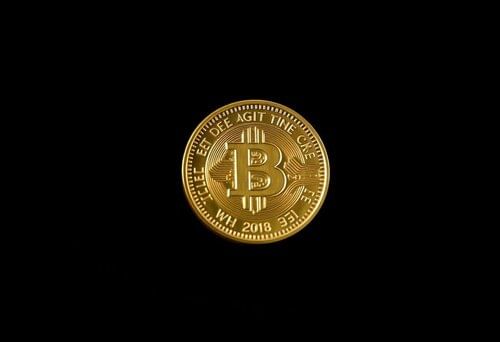 |
Card: 42 / 50 |
|
What does the probability scale range from, and what does each term represent? |
Card: 43 / 50 |
The probability scale ranges from impossible to certainUnderstanding Probability Terms
|
Card: 44 / 50 |
|
In a scenario with Bag A containing 3 green and 3 blue balls, what is the probability of picking a green ball? |
Card: 45 / 50 |
50%Probability of Picking a Green Ball
|
Card: 46 / 50 |
|
Fill in the blank: An event that is expected to happen but is not guaranteed is considered ___ likely. |
Card: 47 / 50 |
|
True or False: In Bag C, which contains 0 green and 10 blue balls, it is certain to pick a green ball. |
Card: 49 / 50 |








